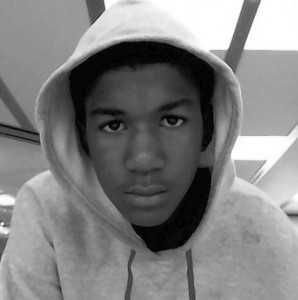Harvard University Book Cover: Images Matter…
by admin
A notice arrived in my email this morning for the new Harvard University Press publication, Image of the Black in African and Asian Art, a fine addition to the excellent work already done by the Menil archive whose extensive collection resulted in the ten-volume magnum opus titled Image of the Black in Western Art. As a scholar, I have been greatly influenced by that work and the extraordinary contributions of Henry Louis Gates to the discourse of Global African studies.
I am awaiting my copy of this new book with great anticipation but I am seriously disturbed by the image used on the cover of this book, which to all intents and purposes makes a very terrible statement about blackness as deviancy. This is the kind of image CNN usually introduces to justify the unlawful killing of black people at the hands of police, and no one in the USA today, and beyond for that matter, can fail to link this image to the tragic death of Trayvon Martin, (see image at bottom of post) who was fatally shot by a deranged racist vigilante who then walked on the basis of the State of Florida’s spurious “stand your ground” defense.
Images matter, and this image reminds me also of Time Magazine’s darkened image of O.J. Simpson on its cover, after he was accused of murder (see image at bottom of post). Surely, Harvard University Press and the editors (which includes my esteemed colleague Suzanne Blier, an advocate for African and African Diaspora justice issues) could have chosen any number of very positive images of Africans from the vast Menil archive, rather than this one that presents a shifty looking individual whose very appearance and lighting suggests Western images of the Dark Lord Sauron. Seriously speaking, this is a very disturbing choice made by the editors and it undermines whatever value the book will have, which should be great given its illustrious predecessors. They might have well have given the hooded figure a gun and titled the book “Thug Life”
And speaking of which, Harvard University Press should also drop the term “non-Western” from its publications descriptions. The Western world, no matter its influence on global affairs, is a minor percentage of the world population in general. Africans deserve to be described as Africans, rather than as “non-Western” peoples. Would it be proper to describe French people as non-Africans or as non-Germans for that matter? One designation names, the other denigrates.
I am myself a publisher who owns a publishing imprint. I therefore know that you can’t blame authors for what designs a publishing house chooses for producing its books. However, it is my experience that an author or editor has a lot to say about what goes on the cover of their book, and if this particular book, The Image of the Black in African and Asian art, went to press without any of the editors signing off on the image chosen for its cover, then they have failed to excercise adequate oversight. I would rather not consider that they actually CHOSE to use this image since it speaks to a spectacular lack of awareness, which I cannot imagine the esteemed editors falling prey to.
I am not sure what HUP would now do about this book, which is already being circulated and sold worldwide. Matters of injury to black peoples are often not given the same kind of swift attention such deserve. I am however sure that in any other context, HUP would be hard pressed to continue to sell this book with its cover. As academics, we are called upon to be civil in our discourse, and to speak with rationality. However, each time I confront situations where authorities that should know better resort to blatantly insulting imagery of blacks, I feel significant anger, and I think I have a right to that anger. This is a form of psychological abuse and the fact we let such things slide only pushes black people farther down the scale of abuse, till we get to the point where police shooting down black men and women like dogs rarely rate any public outcry.
Harvard University Press is affiliated with a very rich institution. They can afford to take the loss from recalling these books and reissuing them with a new cover. I insist that they do so, and perhaps learn from their loss why it is necessary to be careful with the kinds of images of Africans and African Diaspora peoples they peddle.
Trayvon Martin
Darkened pictures of O.J. Simpson on magazine covers
BBC-News Interview with Prof. Sylvester Ogbechie
Sep 20, 2017
How documenta 14 Failed Everyone but its Curators
Sep 20, 2017





